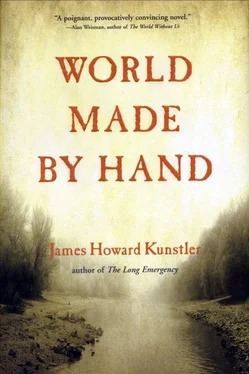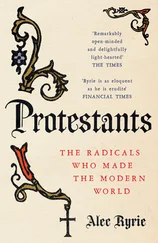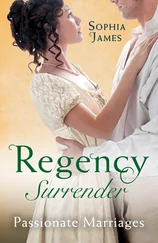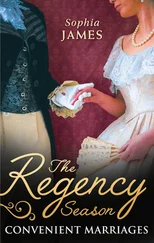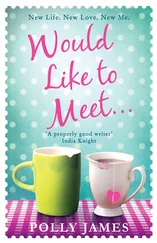“Yessir, I do.” He gave a mordant little laugh. “If it’s not raining out tomorrow night, I say it’s back to camping for us in the fresh air.”
“I’m with you on that. Should we pay a call on this Boss Curry tomorrow?”
“Not right off,” Joseph said. “I smell something.”
“What?”
“Just a feeling. I say we comb the docks and the boathouses first.”
“What feeling?” I said.
“Some kind of trap,” he said. “We saw situations like this in the Holy Land, when things were not what they seemed to be.”
“Do you think this Curry has done something to Bullock’s crew?”
“I think they may be in his custody.”
“Hostages?”
“Yessir.”
As I paused to reflect on this, a vicious thunderbolt, like a gunshot, crackled across the rooftop and reverberated against the concrete slabs of the old ruined highway above.
“Like a ransom situation?”
“Yessir.”
“But nobody sent any message to Bullock demanding money for his crew,” I said.
“How do we know that?”
His question caught me up short.
“Leastwise, Bullock didn’t mention any,” I said.
“Why risk sending a messenger all the way up there,” Joseph said, “when sooner or later Mr. Bullock would surely send someone down here to inquire, which he has now done, namely us.”
“Then I suppose we can’t be too careful.”
“Exactly so.”
“I see,” I said, trying to take measure of what I didn’t see. “I hardly recognize this city. It’s frightening how much has changed here in just a few years.”
“Everything’s gone to the devil all over our poor country. Believe me. We’ve seen a lot.”
“Why did you leave Pennsylvania, Joseph?”
For an awkward interval, we lay silently there in the moist darkness. I wondered if he had heard me.
“Well, sir,” he said finally, “race trouble, to be honest.”
“What do you mean?”
“A lot of people cut loose when Washington got hit, you know. They left there with nothing but the clothes on their backs and some firearms. You had civil disorders in Philadelphia and Baltimore, refugees fleeing, what you folks call pickers, bandit gangs. Pennsylvania became a desperate place. After a while, it was like cowboys and Indians.”
“What happened?”
“There was no getting along.”
“Did you fight?”
“Yessir. Over two years we lost twelve of our number.”
“Why did you stay as long as you did?”
“It was mighty good land. Some of the best I ever seen. But, obviously, we decided to move on.”
“I’ve got a boy out there somewhere,” I said.
“Where?”
“I don’t know, exactly. He set out two years ago with Reverend Holder’s boy. We haven’t heard from them since.”
“I hope he turns up, sir,” Joseph said. “I had a boy myself.”
“Had?”
“He was one of the twelve that was killed.”
“Oh… gosh… I’m sorry.”
“He was sixteen. Name of Aaron. He was a brave boy. Yours?”
“Daniel. Nineteen when he left. We haven’t seen that kind of strife up in Washington County, New York.”
“I know. That’s how come we like it.”
“I didn’t know it was so bad out there.”
“There’s grievances and vendettas all around at every level. Poor against whatever rich are left. Black against white. English-speaking against the Spanish. More than one bunch on the Jews. You name it, there’s a fight on. Groups in flight everywhere, ourselves among them. I haven’t seen any black folks or Spanish in Union Grove so far. You got any, sir?”
“Some black families lived in that hollow down by the WaylandUnion Mill, the old factory village. The mill closed up before I moved to town. There was a fellow named Archie Basiltree who worked in the Aubuchon hardware store when we first came. The store is gone and so is Archie. Another black man worked on the county road crew.”
Thunder had been pealing and lightning flashing all along, some strokes so close that they shook the building.
“I haven’t been anywhere in years,” I said. “I don’t really know what’s going on out there.”
“Let me tell you something, sir,” Joseph said. “There has been considerable churning of the population and warring among different sorts of people all over. Why do you think we left Virginia in the first place? I think the separate regions will go their own
“It would be a sad and sorry thing if it came to that.”
“Well, it has come to that, sir.”
In a little while, Joseph’s breathing fell into a regular rhythm, and I assumed he’d gone to sleep. I lay awake longer, listening to the rain drip from the eaves and thinking of the big map that hung from the top of the chalkboard in my primary school in Wilton, Connecticut, so many years ago, back in the days of cars, television, and air-conditioning. The states on this map were muted tones of pink, green, and yellow. Over it hung the flag that we pledged our allegiance to every single morning. “One nation, under God, indivisible…”
In the morning, the sky had been swept clean again and, of course, the heat was rising. I had kept the bandana on my hand overnight and, when I took it off before breakfast, was astonished to see that a florid pink spot on my palm was all that remained of the blister. A new layer of skin had seemingly grown over the spot.
Minor joined us from the stable for a breakfast of fresh eggs, smoked fish, and corn bread downstairs, again paid for in silver coin. The animals were rested, watered, and ready, he said. He had straw in his hair from bedding down in the stable, but he didn’t complain about his duties.
I showed Minor my hand and asked him how it was possible that such an injury could actually heal overnight.
“Solomon’s seal has powers,” he said. “But you add a little Jesus juice to the mix and that puts her in overdrive, so to say.”
It wasn’t an explanation that squared with my understanding of how reality worked. But I couldn’t argue with the results either.
“I’m grateful to you,” I said.
We decided over our meal to devote the early hours of the day to shopping for wholesale goods and necessities along Commercial Row. New Faith needed everything from salt in quantity to candlewicks. I wanted to find machine-made paper and good steel pen nibs for the town so we could resume recording things again in a coherent way, medical supplies for Jerry Copeland, and whatever else I could scrounge up. We didn’t have a whole lot of cargo space in the donkey cart. After that, we’d break into two groups and search the wharves for the Elizabeth. If we found her, perhaps we could bring more goods back to Union Grove. But that remained to be seen.
When we turned out onto the street, the first thing we saw was the figure of a large man seated in the dirt, slumped against a rain barrel across the way with a hog rooting in his lap. The figure was inert. As we came closer, we could see a vivid red and gray mess of stuff that looked like sausage links in his lap, where the pig was rooting. Seth sent the animal off squealing with a blow across the hams with the flat of his sword.
“He’s dead,” Elam said. “Why, I’ll be dog.”
“What?” Joseph said.
“This is that same drover we took that jenny off of. Lookit.”
Elam took a kerchief rag out of his pocket and used it to hold the dead man’s head up at the chin for us all to see. The face was distorted in death, and the whites of his still-open eyes were shot through with blood as if he had suffered a severe blow to his head. But it apparently was indeed the same man we’d quarreled with at the Waterford bridge.
“I believe you’re right,” Seth said. “That’d be the one.”
Читать дальше
